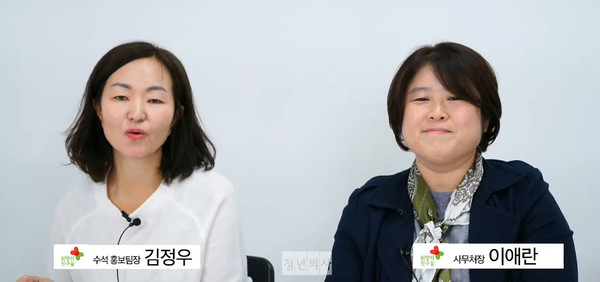Nearly 1 million migrant workers in Korea could avoid Covid-19 cluster infections, unlike the recent Singapore case, where thousands of foreign workers were ordered to quarantine.
However, the absence of such a cluster infection in Korea came at the expense of the migrant workers’ extreme avoidance of outdoor activities, officials at an NGO said.
After racism grew strong in Korea in the wake of the Covid-19 outbreak, migrant workers had to keep a low profile. Even legitimate employment visa holders had to refrain from going out. Some chronic patients could not receive medical treatment on time. Many of them lost their jobs due to the Covid-19 crisis.

WeFriends, a non-profit health association for migrant workers, shared foreign workers' dire situations on a YouTube show on Friday.
WeFriends Secretary-General Lee Ae-ran said migrant workers’ poor healthcare access deteriorated due to Covid-19 during the show.
The NGO estimated that around 1 million migrant workers, including those under the work permit system and unregistered ones staying here illegally, were working in Korea.
Migrant workers with employment visa can subscribe to the national health insurance program. However, less than 50 percent join the program because their employers, mostly in small businesses, are not obliged to share the health insurance premiums.
Cluster infections among migrant workers did not occur in Korea because they were extremely careful not to be exposed to the outside world, Lee said.
“Many migrant workers did not go out for fear of being forcefully deported because of Covid-19. Also, employers ordered them to go back and forth between the dormitory and the workplace only,” Lee said, adding that many of them complained of insomnia and anxiety.
However, what’s unfortunate was that misunderstanding, discrimination, and hatred toward foreign workers grew stronger in Korean society, she noted.
Under the prolonged Covid-19 pandemic, the health authorities need to include not only residents but expatriates in the quarantine system, Lee went on to say.
However, exclusion and discrimination against migrants became more severe.
Foreign workers are more vulnerable to unstable jobs, but they are often isolated from the government’s support despite their tax payment, she said.
“One pregnant migrant worker could not receive a prenatal checkup and gave birth prematurely. She could not go to the hospital because of the medical cost and the fear of going out,” Lee said.
In the past, private organizations and migrant support groups provided free medical treatment. However, such services are no longer available because Covid-19 and migrant workers lost a chance to take care of their health, she said.
Also, WeFriends encountered an increasing number of emergency cases in their medical support activities because many workers failed to visit a clinic to get timely treatment, and their symptoms went urgent, Lee said.
Jeong-woo, senior manager of the communication team at WeFriends, said the health authorities must take care of migrant workers and the Korean people to make the disease control and long-term prevention success.
At the initial stage of the Covid-19 outbreak, the government excluded unregistered migrant workers from the public mask supply. WeFriends urgently doled out hand sanitizers and masks for them and helped them receive Covid-19 diagnostic tests, according to Kim.
For foreign workers who came to Korea under an employment contract between two states, the Korean government should provide facilities for quarantine, she went on to say.
“How can migrant workers, who are new to Korean society, find a self-isolation facility by themselves? Few people can lend such a facility for migrant workers. This is why many migrants went through difficulties,” she said.
Lee and Kim emphasized that migrant workers were also members of Korean society.
Korean people can become migrant workers in foreign countries, and there is no meaning to divide one group of people from another, Kim said.
She hoped that Koreans could have a view that living together with migrants was a pleasant thing, rather than trying to separate the two.
(Caption)
WeFriends Secretary-General Lee Ae-ran (right) and Communication Team Senior Manager Kim Jeong-woo appeared on a YouTube show on Friday to talk about the difficulties migrant workers experience during the Covid-19 pandemic.

